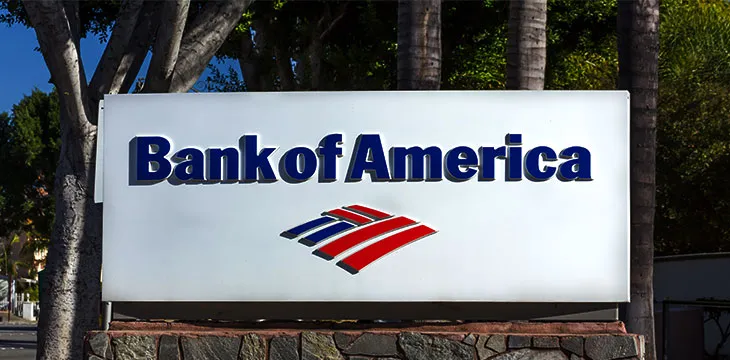|
Getting your Trinity Audio player ready...
|
The popularity and continued rise of cryptocurrency has turned many heads recently. Even JPMorgan Chase, an outspoken critic of the digital currency, has been holding closed-door meetings on the topic. Now, Bank of America (BoA) is speaking out, and says that cryptocurrencies are a threat to its business model. That, of course, is good news for all crypto enthusiasts.
In a report the banking giant filed with the U.S. Securities and Exchange Commission (SEC), BoA reported, “Clients may choose to conduct business with other market participants who engage in business or offer products in areas we deem speculative or risky, such as cryptocurrencies. Increased competition may negatively affect our earnings by creating pressure to lower prices or credit standards on our products and services requiring additional investment to improve the quality and delivery of our technology and/or reducing our market share, or affecting the willingness of clients to do business with us.” It would appear that BoA executives recognize cryptocurrencies for what they really are—a real future for currency.
Cryptocurrencies were born out of the financial crisis of 2008. Individuals saw the need to create a currency that would maintain its strength and not be tied to a single currency that could fail. Fiat currency isn’t linked to physical reserves and, thus, is at risk of becoming worthless due to hyperinflation. Legacy Bitcoin, otherwise known as SegWit1x (BTC), led the way for cryptocurrencies and there are now over 1,384 different coins on the market today. This number continues to grow as more entities see the value in a truly global currency.
Cryptocurrencies, without a doubt, still have a long way to go. However, they’re evolving at a much quicker pace due to technological advances and, more importantly, the global input that helps propel them. The lack of central oversight is what motivates a lot of investors to put their money into the currency. This is not much different from putting money into a fiat savings account, except the returns are much greater.
BoA isn’t the only entity that is concerned about the impact cryptocurrencies will have on its business. Since many governments have decided banning the coins is virtually impossible, banks around the world have concluded that they’re on their own and will have to decide for themselves how to proceed. In fact, many countries look to embrace the power of cryptocurrency in the near future.
Turkey and Iran are exploring the possibility of creating a national alternative that could coexist with BTC and the rest of the gang. Japan accepts cryptocurrencies with open arms. South Korea recently accepted the fact that cryptocurrencies are here to stay, and the official State Bank of India expects blockchain, the technology behind the coins, to take over the banking sector by 2030. For or against, there’s no escaping the fact that cryptocurrencies are poised to reinvent economies around the world.

 06-30-2025
06-30-2025 





